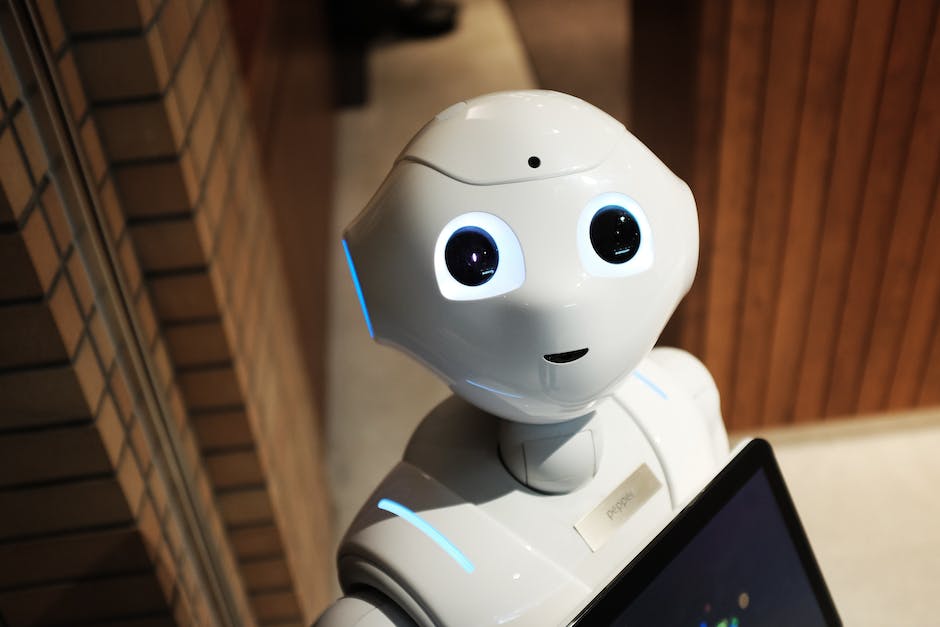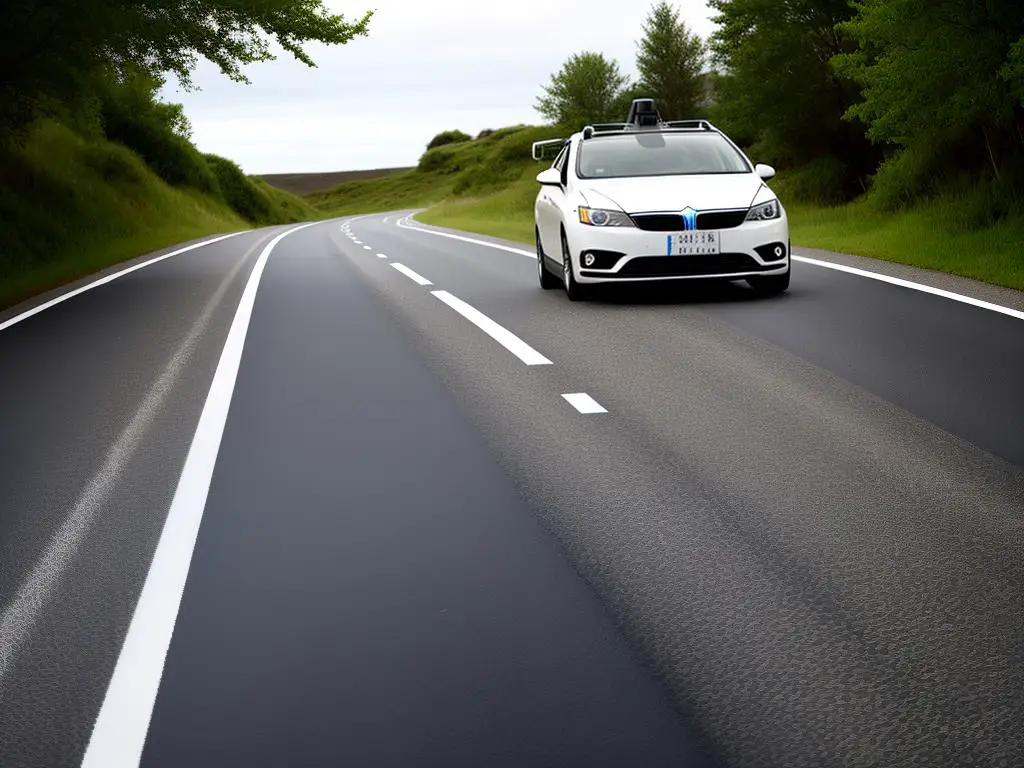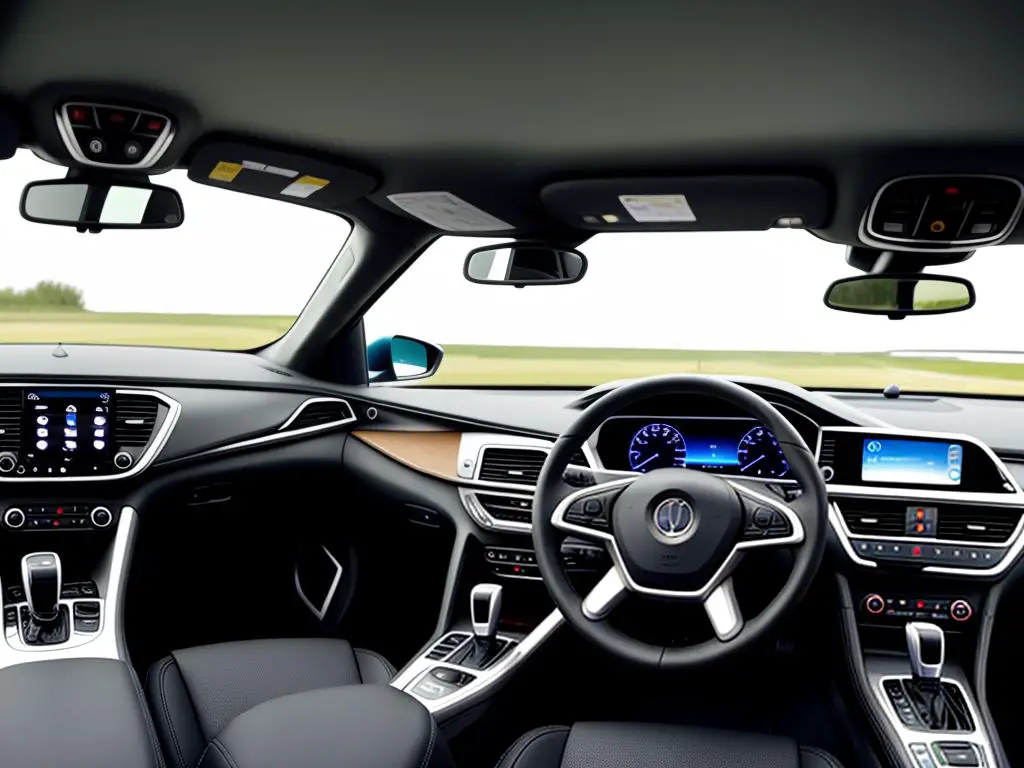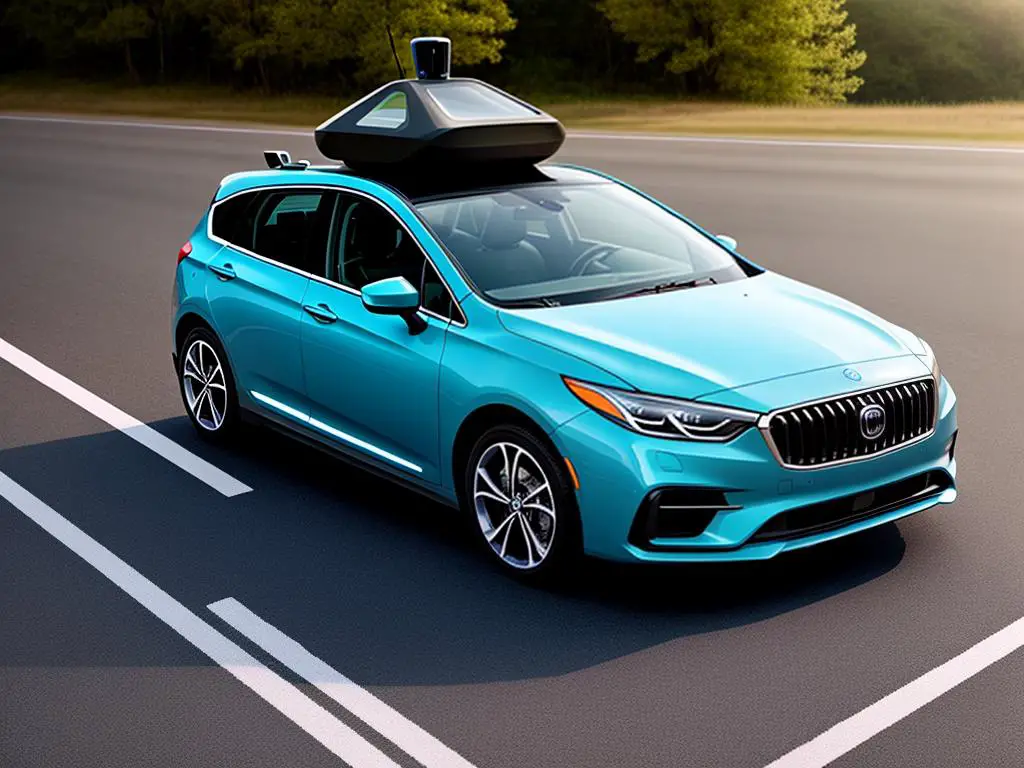AI Revolutionizing the Future of the Auto Industry
The advent of Artificial Intelligence (AI) has ushered in a new era of technological developments in varied sectors, and the automotive industry stands at the forefront of this revolution. As machine learning algorithms become more sophisticated, AI’s functionality extends beyond just being a novelty to a fundamental component in designing and manufacturing vehicles. From production lines to autonomous driving and personalizing in-car experiences, this innovative technology, in its many forms, is making significant strides in redefining the future of the automotive industry. With this backdrop, this dive into the world of AI in the automotive industry aims to shed light on understanding what AI is and how it became a game-changer in this industry.
Understanding Artificial Intelligence in the Automotive Industry
Understanding Artificial Intelligence in the Automotive Industry
Artificial Intelligence (AI) refers to systems or machines that mimic human intelligence. This technology learns, reasons, perceives its surroundings, and takes actions that directly impact an environment or a system. It’s a vast, interdisciplinary field that encompasses everything from robotics and speech recognition to natural language understanding and problem-solving.
A Brief History of AI in the Auto Industry
The integration of AI into the automotive industry isn’t a new concept. The relationship dates back to the early 1960s, when General Motors and IBM first came together to install the first robot, Unimate, onto a New Jersey production line. This started a revolution and was the seeding moment of incorporating AI into the auto industry, with the primary goal being automation and efficiency.
Over the past few decades, the auto industry has made significant strides in integrating AI technology, transforming from basic automation to advanced driver-assistance systems (ADAS), and progressing towards full autonomy, which is yet to become mainstream. The journey has been a mix of evolution, spurred by technological advances, and revolution, necessitated by safety concerns, and customer preferences and expectations.
Current Use of AI in the Automotive Industry
AI technology currently influences numerous aspects of the automotive industry, increasing efficiencies and enhancing customer safety and experience in extraordinary ways.
- Production and Manufacturing: AI allows for automation in the assembly line, leading to increased efficiency, lower production costs, and reduced errors and defects.
- Autonomous Driving: Self-driving cars are perhaps the most known manifestation of AI in the auto industry. Using sensors and onboard analytics, AI systems can process information and make driving decisions, paving the way towards full autonomy.
- Predictive Maintenance: By leveraging machine learning, auto manufacturers and service providers can predict vehicle maintenance needs based on usage patterns, mitigating potential problems before they escalate.
- Personalized In-Car Experience: AI can customize in-car experiences by learning drivers’ preferences, adjusting settings like temperature and seat configuration, offering personalized entertainment, and suggesting optimal routes.
- Supply Chain Management: AI streamlines the supply chain by managing inventory and predicting demand trends, thereby ensuring uninterrupted production.
AI and The Future of the Automotive Industry
Looking at the future, AI technology holds incredible potential for the automotive industry. Here are some developments we can expect:
- Fully Autonomous Vehicles: With evolving technology and regulatory support, we can expect to see more fully autonomous vehicles. These vehicles will not only eliminate the need for a human driver, but also offer an improved experience, productivity, and safety.
- AI-Powered Traffic Management: AI could enable real-time traffic management systems that analyze traffic flow and modify signals and routes in response to changing conditions, helping to minimize jams and improve road safety.
- New Business Models: With the rise of autonomous vehicles, new business models such as Mobility-as-a-Service (MaaS) could flourish. This would entail replacing car ownership with car sharing and ride-hailing services powered by autonomous vehicles.
The deployment of AI within the automotive industry brings with it a multitude of potential advantages, including enhanced safety, efficiency and sustainability. If we hope to capitalize on these promising advancements, we must also tackle the challenges they present, including concerns over privacy, job displacement, and cyber security. In order to ensure the judicious use of AI in auto industry processes, it is imperative that proper policies and guidelines are established.

The Impact of AI on Automotive Manufacturing
Transforming Automotive Manufacturing with Artificial Intelligence
The landscape of automotive manufacturing is being revolutionized by the rapid adoption of Artificial Intelligence (AI), machine learning, and robotics. Through these cutting-edge technologies, processes are becoming significantly more efficient, cost-effective, and of superior quality.
When synchronized with the Internet of Things (IoT) devices and sensors, AI can accurately forecast when certain components or machinery might require maintenance or face potential failures. This methodology of predictive maintenance can limit unexpected operational interruptions, minimize downtime, and avoid costly unexpected breakages.
Optimizing Efficiency Through AI
AI technologies are deployed in automotive factories to enhance overall operational efficiency. For instance, some factories employ AI-controlled robots that handle repetitive tasks, freeing up human workers to focus on more complex and critical tasks.
Machine learning algorithms can also improve assembly line logistics. These solutions analyze vast amounts of data and make recommendations for streamlining production and reducing waste. As a result, the adoption of AI in automobile manufacturing can lead to less material waste and lower production times, hence reducing the overall manufacturing cost.
Using AI for Quality Control
AI-based quality control methods are far superior and more efficient than traditional visual inspections performed by human workers. Machine vision technology, a subset of AI, is used to inspect parts and vehicles. Unlike their human counterparts, these AI systems can work continuously without fatigue or a decrease in precision or productivity.
They can identify defects or issues within a fraction of a second, ensuring only high-quality vehicles leave the factory floor. This not only enhances the overall product quality, but it also saves costs associated with rectifying defects or recalling faulty vehicles.
AI and Autonomous Vehicles
AI’s potential is not limited to the manufacturing process. The promise of self-driving cars and fully autonomous vehicles is arguably the most headline-grabbing area of AI within the automotive industry.
AI technologies, such as machine learning and deep learning, are utilized to interpret data from multiple sensors, enabling the vehicle to perceive its surroundings, understand the environment, make decisions, and navigate roads without human intervention.
Artificial Intelligence’s Evolution in the Automotive Realm
Through the relentless advancement of Artificial Intelligence (AI), this revolutionary technology is leaving an undeniably transformative impact on automotive manufacturing. It’s envisioned that future AI systems would not only manage but also orchestrate myriad processes across production lines and manufacturing plants, augmenting operational efficiency significantly.
AI-driven progress in autonomous driving technology promises an exciting future with an abundance of self-driving vehicles. This evolution stands to revolutionize commuting and has the potential to significantly shake up industries like logistics and transport.
The invaluable data procured from AI and IoT technologies provides a rich resource for automotive manufacturers, enabling data-driven decision-making and spurring innovative research and development.
The effect of AI on the automotive sector is vast and embeds various enhancements, from improved operations, cost-effectiveness, and quality improvements in products, to causing paradigm shifts in how vehicles are utilized and perceived.
While the journey may come with hurdles, like the requirement for fresh regulations, high investment costs, and transitions in professional spaces, there’s little doubt that AI is the catalyst for a new era of ingenuity, productivity, and transformation in the automotive landscape.

Emergence of Self-driving Cars
Exploring the World of Self-Driving Cars
One of the prominent areas where Artificial Intelligence (AI) has been playing an instrumental role in the automotive industry is in the blossoming field of self-driving or autonomous vehicles. The concept of these vehicles revolves around their ability to maneuver on roads, interpret traffic signs, and essentially operate without the need for a human driver. The AI-based systems embedded in these autonomous vehicles are the backbone for these functionalities, marking a revolutionary shift from the traditional approach of driving.
Artificial Intelligence Integration in Autonomous Vehicles
Central to the development of autonomous vehicles is AI, a technology that enables machines to learn from their experiences and make decisions in ways that mimic human intelligence.
AI systems in self-driving cars employ various technologies, including machine learning, advanced sensors, and computer vision. In addition, these vehicles use LIDAR technology that measures distances between the vehicle and surrounding objects and sensors that monitor the car’s surroundings. The AI-powered cars then process this collected information to navigate appropriately.
Machine learning, a subset of AI, allows these vehicles to learn from their experiences, similar to how a human driver would learn from driving more frequently. The cars’ autonomous driving software can learn to recognize patterns and adapt to different situations over time.
Benefits of Self-Driving Cars
One of the most significant benefits of self-driving vehicles is enhanced safety. Human error contributes to a vast majority of road accidents. But AI-powered systems can reduce this drastically as they can continuously monitor their environment and make quicker, more accurate decisions than human drivers.
Improved efficiency and productivity is another benefit. Given that these vehicles don’t require human assistance, passengers can utilize their travel time for other activities. Moreover, autonomous vehicles can communicate with each other, enabling more efficient traffic management and potentially reducing congestion.
Current Examples of Autonomous Vehicles
Various automotive giants are investing in the development and testing of autonomous vehicles. Consider Tesla, a forerunner in the space, with its “Autopilot” system that facilitates autonomous driving in specific conditions. Google’s self-driving project, Waymo, has launched a ride-hailing service with autonomous vehicles in Phoenix, Arizona.
Challenges to Widespread Adoption
Despite the promise, many challenges impede the widespread adoption of self-driving cars. One of the most significant is the requirement for advanced infrastructure, including smart traffic systems, high-definition mapping, and reliable internet connectivity.
Furthermore, cybersecurity is a massive concern with autonomous vehicles as they are vulnerable to hacking, which creates safety risks. Ethical dilemmas and the need for regulatory frameworks are also hurdles. Finally, public acceptance is a considerable obstacle, with many people still uncomfortable with the idea of cars driving themselves.
In summary
The emergence of Artificial Intelligence (AI) is significantly influencing the automotive industry. It’s propelling the development of autonomous vehicles, amidst a myriad of potential benefits signalling a hopeful future. However, there are considerable challenges to overcome before such vehicles become a part of our daily lives.

AI’s Role in Transforming In-car Experience
The Transformational Impact of AI on In-Car Experiences
Artificial Intelligence isn’t just prompting changes; it’s entirely revolutionizing industries, one of which is the automotive sector. It’s driving the transition to intelligent vehicles loaded with advanced safety systems, custom in-car services, and efficient routing solutions. These advancements underpinned by AI have significantly elevated the in-car experience to new heights.
Voice Control and AI
AI has been instrumental in enhancing voice control functionalities in vehicles. It has allowed for the mapping of complex sentence structures and has paved the way for interactive and conversational speech recognition systems in cars.
AI-powered voice assistants in vehicles are conditioned to understand natural language, respond to direct commands, and even interact based on preset personal preferences. They control media play, answer queries about the vehicle’s status, guide on routes, and even help the driver send messages or make calls, all hands-free. Companies like Ford, BMW, and Mercedes utilize Alexa, Siri, and their AI inclusions for these purposes.
AI in Advanced Navigation Systems
Modern navigation systems have been revolutionized by the integration of AI. With real-time data collection and predictive modeling, these systems can provide quicker, safer routes. They can learn and adapt to the driver’s route preferences, predict routes based on previous trip data, and provide alternative paths to avoid traffic, construction sites, or any unforeseen road hazards. Tesla is one such company that uses AI to enhance its navigation system, offering real-time insights about traffic conditions and suggesting the most efficient routes to drivers.
Personalization of In-Car Amenities
The personalization of in-car amenities leverages AI algorithmically to provide a customized environment according to the user’s preferences. AI can adjust seating, lighting, temperature, and even play the occupants’ favorite music as soon as they enter the vehicle, making every journey more comfortable.
Each user’s profile containing their preferences can be saved and used by the car’s AI system, ensuring that every trip is tailored to the individual’s comfort and needs. Also, AI embedded with facial recognition or biometric data can effectively prevent unauthorized users from accessing the vehicle, enhancing vehicle security.
Predictive Services and Data Collection
Predictive services in AI-equipped cars use real-time data collection to boost efficiency and ease-of-use. By collecting and analyzing data related to the vehicle’s condition, AI can predict necessary inspections, required maintenance, and potential malfunctions, alerting the driver in advance and avoiding last-minute breakdowns.
Moreover, data from collision detection sensors can be used to enhance safety features, while data from driving patterns can help in developing advanced driver-assist technologies. AI makes it possible to analyze and implement this vast sum of data to make every drive safer and more comfortable.
Final Thoughts
Artificial Intelligence (AI) is paving the way for a new era in the automotive industry. It’s enhancing in-vehicle experiences, honing personal comfort levels, transforming navigation systems, and weaving predictive services into auto technology. The way forward for this industry is to tap into the immense potential of AI, creating safer, more efficient, and customized experiences for drivers.

The Future of AI in the Automotive Industry
Visualizing the Impact of AI on the Future Automotive Industry
From every walk of life, Artificial Intelligence (AI) is leaving a game-changing mark, and the auto industry doesn’t remain untouched by this wave. The future seems bright and thrilling as AI is primed to completely upend the sector. AI is how vehicles will reach the next level—from taking the wheel themselves with autonomous driving to enhanced safety features, providing better customer service, and streamlining manufacturing processes—all of which spells a huge jump forward for auto technology.
Emerging AI Technologies and Their Impact on the Automotive Industry
Self-driving cars are perhaps the most anticipated breakthrough in AI for the automotive industry. This next-gen technology goes beyond mere driver assistance to fully autonomous operations. Tesla’s Autopilot and Google’s Waymo are few among many leading the charge in this niche. For consumers, autonomous cars mean increased convenience and efficiency, while for society at large, it could mean less traffic and fewer accidents caused by human error, enhancing overall road safety.
AI has a substantial role in enhancing manufacturing processes too. Robots equipped with advanced AI can automate complex tasks, improving efficiency and lowering production costs. This not only speeds up production but also allows for more precise and consistent results.
Predictive maintenance, powered by AI, is another key development. Vehicles equipped with built-in sensors and AI can monitor their health in real-time, predict potential malfunctions, and alert drivers to perform timely maintenance. This can significantly increase vehicle longevity and performance, bringing major savings for owners and reducing environmental impact.
Potential Benefits & Challenges for the Automotive Industry
Embracing AI brings a wealth of benefits to the automotive industry. Autonomous vehicles can mitigate the risks of human error, potentially saving thousands of lives yearly. AI-enhanced production ensures consistent quality, optimizing efficiency, and reducing costs. Predictive maintenance keeps vehicles in optimal condition, prolonging vehicle life and contributing to sustainability goals.
Conversely, AI integration also brings challenges. Chief among them is cybersecurity. As cars become more connected, they become susceptible to hackers, posing risks to personal data and safety. Another issue is the significant initial investment needed to incorporate AI technologies. It also requires a skillful workforce capable of managing and utilizing these advanced systems.
For society, there’s the question of job displacement. As robots take over production roles and self-driving vehicles become common, many jobs could become obsolete. Additionally, there’s the ethical issue surrounding decision-making by autonomous vehicles in critical situations.
Implications for Consumers and Wider Society
As AI continues its march into the automotive industry, consumers stand to gain significantly. Enhanced safety features, real-time vehicle health updates, increased efficiency – these are all promising implications for vehicle owners. Furthermore, self-driving vehicles may entirely reshape commuting, enabling productive use of travel time.
However, AI’s societal implications can be profound. Autonomous vehicles could reduce traffic congestion, decrease accident rates, and result in fewer emissions, improving overall societal health. At the same time, the potential job loss due to automation needs to be mitigated, possibly requiring reskilling and job redistribution initiatives.

As we stand on the brink of a future clandestine with AI influence, it’s vital to assess the profound implications of the technology’s accelerated growth in the automotive industry. AI promises to redefine the industry through increased manufacturing efficiency, safer self-driving cars, and an unprecedented level of personalization for consumers. However, the potential challenges like cyber security and data protection regulations shouldn’t be overlooked. As the contours of AI and automation in automobiles continue to evolve, stakeholders must work towards meeting them head-on, ensuring a transition that meets the aspirations and concerns of all involved. Balancing this digital revolution with ethical and societal considerations will shape the trajectory of a smarter, safer, and more sustainable automotive future.
Writio: The AI content writer that crafts high-quality articles for websites. This article was brilliantly written by Writio.
